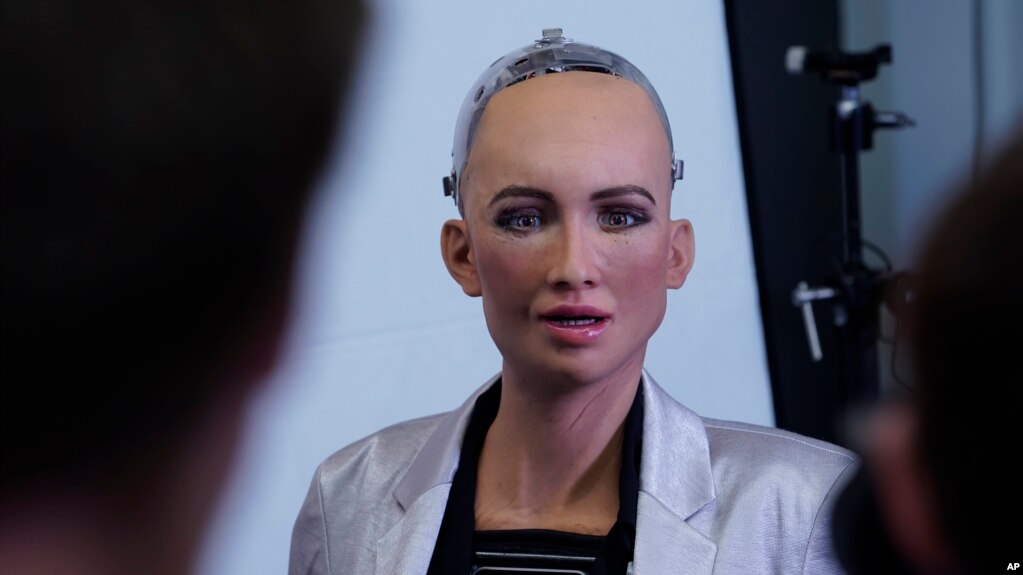Governments Propose Measures to Protect Citizens from Harmful AI

The administration of U.S. President Joe Biden has proposed new guidelines aimed at protecting citizens from the harmful effects of artificial intelligence (AI) systems.
The guidelines are known as the “Blueprint for an AI Bill of Rights.” A blueprint is a plan that shows how someone will design, build or reach a goal. The proposal is not a set of rules and does not include specific enforcement actions. It is meant to influence AI system developers to safeguard digital and civil rights.
The guidelines were created by the White House Office of Science and Technology Policy. They were released as AI systems increasingly expand to many different parts of society.
The plan identifies five areas that aim to guide “the design, use and deployment of automated systems to protect the American public in the age of artificial intelligence.”
The guidelines were established over the past year in cooperation with many government agencies, the administration said in a statement. Officials took advice from civil society groups, technologists, industry researchers and major technology companies.
U.S. officials told the Associated Press the blueprint represents progress in administration efforts to hold technology companies responsible for the AI systems they develop and deploy. The guidelines are designed to limit the effects of bias in AI systems.
Critics of AI have noted many cases in which automated systems have misidentified or discriminated against people based on their race or sex. Several studies and news reports have documented harms that resulted from AI-powered tools.
For example, facial recognition systems used by law enforcement agencies have led to wrongful arrests. In one incident, an automated system discriminated against individuals seeking financial assistance at historically Black colleges. In another case, AI systems used to administer healthcare discriminated against Black patients.
An administration official told reporters such examples demonstrate that some AI systems “are causing real harms in the lives of Americans.” The official added that irresponsible AI systems go against democratic values, “including the fundamental right to privacy and freedom from discrimination…”
The guidelines also urge AI developers to build tools into systems to give users control over their data. And developers are urged to ensure that automated systems are used safely and transparently.
Some technology industry experts have warned that such measures could hurt some American businesses if the guidelines become rules. The head of the non-government U.S. Chamber of Commerce, Jordan Crenshaw, said he would not like to see the guidelines enacted into U.S. law. If this happens, it could “handcuff America’s ability to compete” in AI development with other countries.
In Europe, such proposals have developed much further. Last year, the European Union proposed a set of rules meant to govern AI technology. EU lawmakers are currently debating the proposals, which cover areas such as automated surveillance, privacy protections and system bias. The rules are known as the Artificial Intelligence Act.
Some groups have warned that the EU proposals could create bureaucratic barriers for technology businesses. The proposals would put strong rules in place and fine violators.
The U.S.-based policy group Brookings Institution recently criticized one part of the Artificial Intelligence Act. It said the EU’s plan to put limits on open-source AI could “further concentrate power over the future of AI in large technology companies.”
Open-source AI is an artificial intelligence technology that the public and companies may use without cost. Brookings said that limiting this kind of AI would lead to two kinds of harm.
It would keep many AI systems under the control of big, established technology companies and would deny small businesses the chance to develop new AI tools. In addition, the proposed EU rules would limit valuable research and decrease the openness of widely used AI systems, Brookings said.
Words in This Story
artificial intelligence – n. the development of computer systems with the ability to perform work that normally requires human intelligence
automate – v. to control something using machines and not people
bias – n. a situation in which you support or oppose something in an unfair way because you are influenced by personal opinions
transparent – adj. openness or something that is clearly seen
handcuff – v. to limit someone in the way police do by putting hand restraints on people
surveillance – n. the careful watching of a person or place
bureaucratic – adj. relating to a system of government regulations
https://learningenglish.voanews.com/a/governments-propose-measures-to-protect-citizens-from-harmful-ai/6777222.html